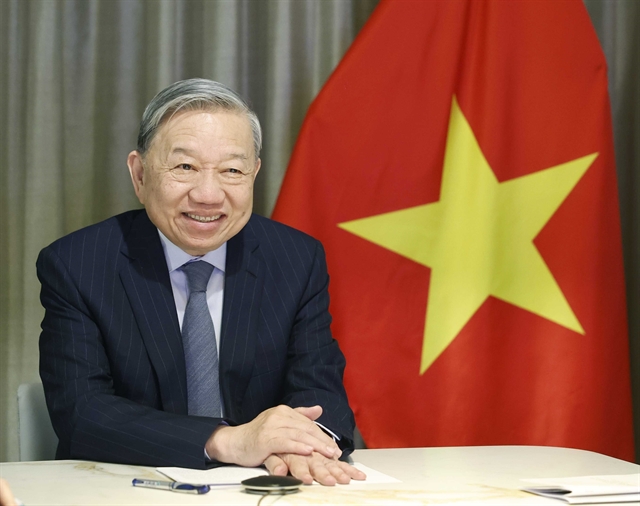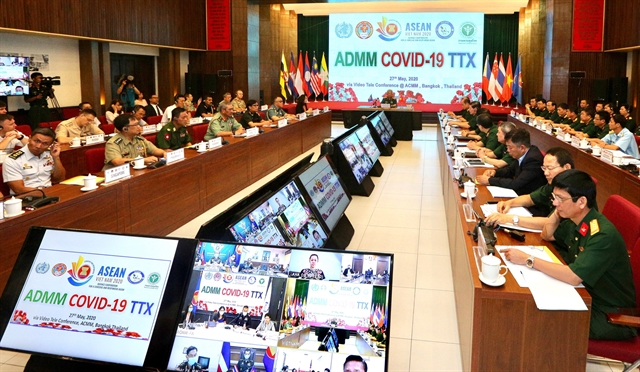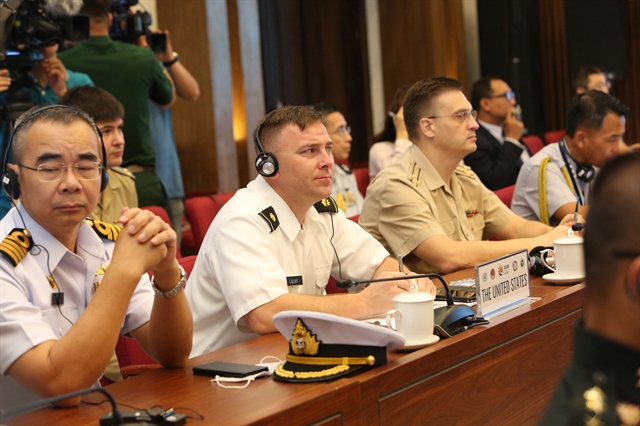 Politics & Law
Politics & Law


|
| The table-top exercise in Hà Nội. — VNA/VNS Photo Dương Giang |
HÀ NỘI — An online table-top exercise (TTX) on COVID-19 response among ASEAN member states’ military medicine forces was held on Wednesday, chaired by the Vietnamese Defence Ministry’s Military Medical Department.
The exercise drew observers, representatives from the ministries of defence and foreign affairs of ASEAN member states, representatives from the ASEAN Coordinating Centre for Humanitarian Assistance on Disaster Management (AHA Centre), and delegates from the military medicine forces of China, India, Japan, the US, Australia, Russia, and the Republic of Korea, which are partners to ASEAN countries in the ASEAN+ framework.
The event aimed to assess the experience of ASEAN states’ military medicine forces in response to the pandemic, defining the relationship between the military medicine force and other forces in this fight, and analysing shortcomings based on the World Health Organisation’s Strategic Preparedness and Response Plan (SPRP), so as to build a joint plan of action to increase ASEAN readiness.
Deputy Minister of Defence, Senior Lieutenant General Nguyễn Chí Vịnh, thanked the defence ministries of ASEAN states and ASEAN+ countries for supporting Việt Nam during the fight against COVID-19.
As Chair of ASEAN in 2020, he went on, Việt Nam hopes the exercise will benefit all participating countries and others involved.
He said he hopes ASEAN+ countries will work with and help their ASEAN partners to defeat the disease.

|
| Representatives from the military attaché to the US diplomatic mission to Việt Nam (as part of the ASEAN+ framework) participated in the exercise. — VNA/VNS Photo Dương Giang |
Participants discussed how to deal with each country’s possible circumstances. Three scenarios were developed, including detecting a new COVID-19 patient after arriving from a business trip overseas with symptoms of fever, coughing and breathing difficulties, detecting a large number of new cases, and widespread community transmission reaching global pandemic status.
Delegates also exchanged opinions on the risk of the disease spreading within ASEAN member states’ military medicine forces, and the risk of health systems becoming overloaded. — VNS




